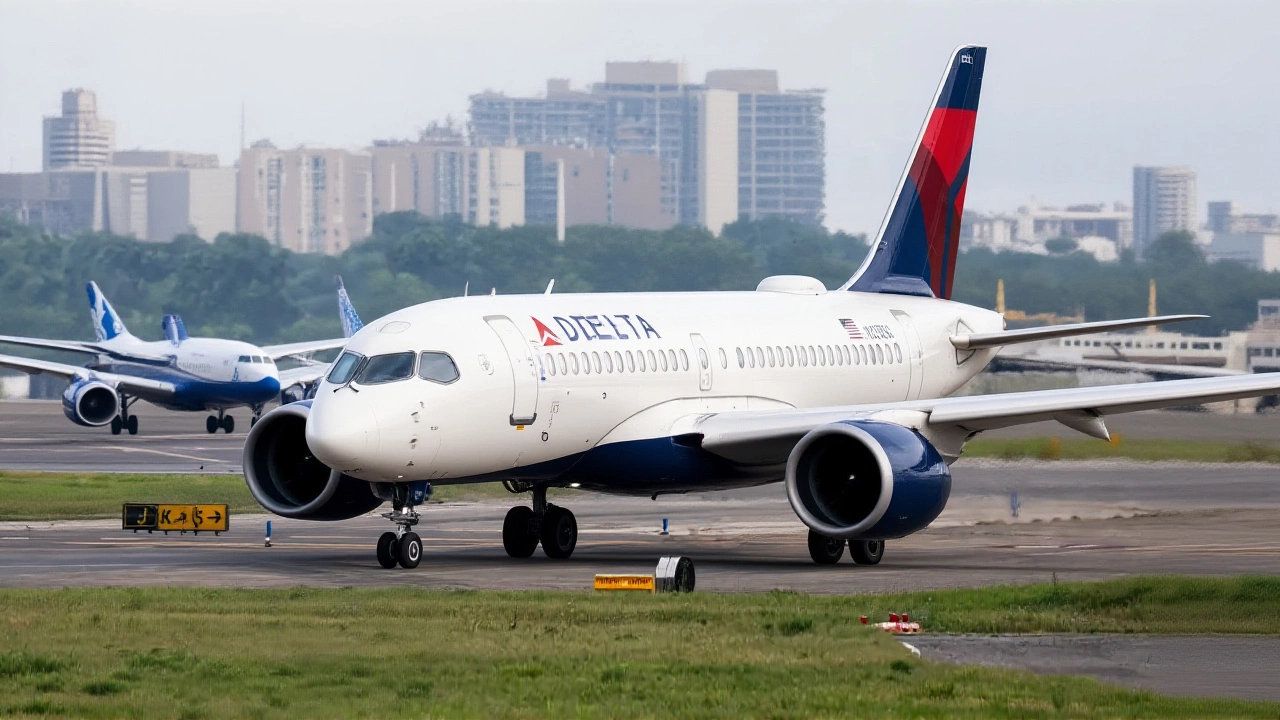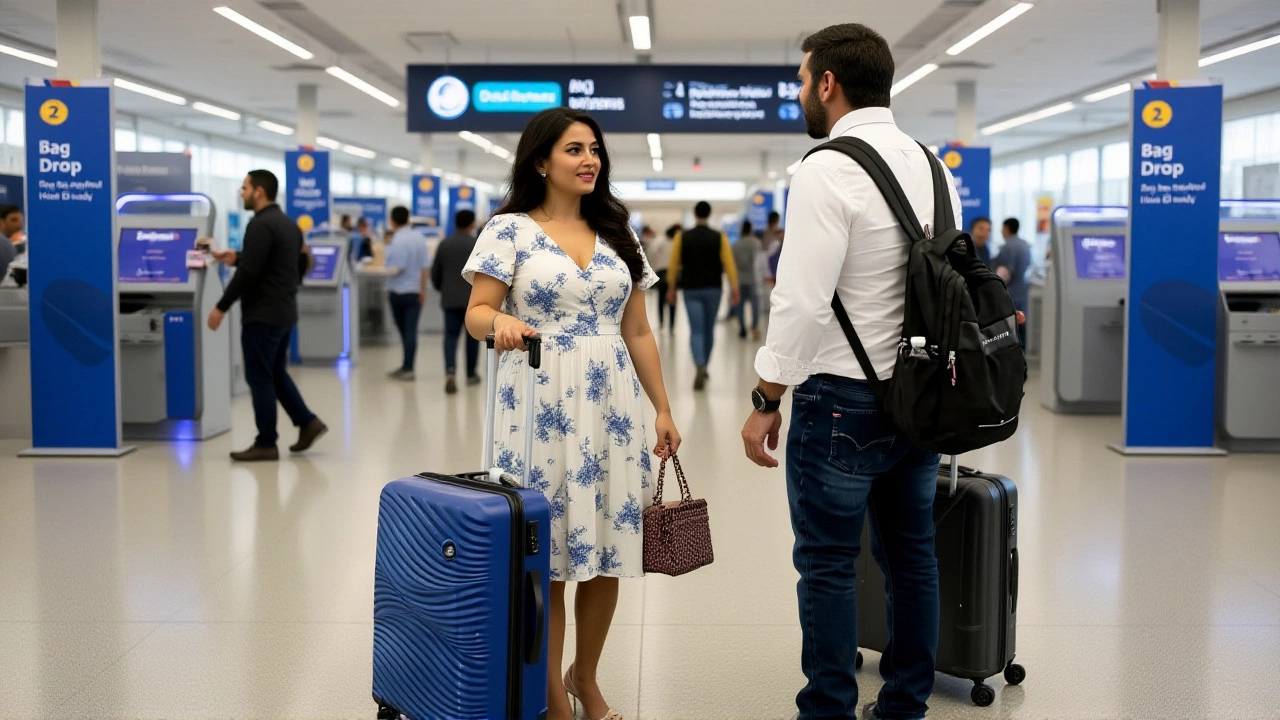When Delta Air Lines and Southwest Airlines saw their schedules grind to a halt on , travelers quickly realized the culprit was far bigger than a single airline’s IT glitch. An early‑morning Amazon Web Services (AWS) outage rippled through reservation platforms, mobile check‑in apps and crew‑management tools, leaving more than 7,300 flights delayed and 110 cancelled across the United States. The chaos unfolded at hubs from Nashville to Dallas, stranding thousands of passengers who suddenly couldn’t see their boarding passes or even confirm whether their bags were still on the plane.
Why reliance on cloud services has become a double‑edged sword
Airlines have spent the past decade plugging their legacy reservation systems into cloud infrastructure, hoping to shave minutes off check‑in times and offer seamless mobile experiences. What many forget is that a single point of failure in the cloud can cripple every carrier that plugs into it. The October 19 incident wasn’t the first time AWS hiccups have hit aviation; a similar outage in July 2024 forced Delta to cancel over 5,000 flights and cost the carrier more than $500 million. That precedent set an uneasy tone for the October event, but this time the impact was broader, touching Southwest, United Express, American Airlines, Alaska Airlines and dozens of regional partners.
Scale of the disruption: numbers that tell the story
- 7,352 flights delayed nationwide – the largest single‑day delay tally since the 2022 winter storm.
- 110 cancellations, most of them short‑haul hops that passengers had already checked into.
- Southwest led with 1,451 delayed departures, followed by Delta’s 1,202 delays.
- More than 3,800 passengers stranded for over six hours at major hubs.
- System recovery staggered throughout the day, with some airline apps back online only after 4 p.m. local time.
The data paints a picture of a system that, while modern, still leans heavily on a single cloud provider. Airlines that had diversified their backend infrastructure fared slightly better, but even they felt the tremor.
Delta Flight 898: a smoky mystery over Atlanta
Amid the tech‑driven chaos, a more traditional safety scare unfolded. Delta Flight 898Hartsfield‑Jackson Atlanta International Airport was en route to Los Angeles when a smoky odor was detected in the cabin of the Boeing 757. The aircraft, carrying 219 passengers and seven crew members, turned back after just 20 minutes in the air. Delta’s statement emphasized that safety protocols were followed, and a rapid inspection cleared the plane for a later departure. No injuries were reported, but the incident added another layer of inconvenience for travelers already battling delayed check‑ins.
Airlines’ immediate responses and passenger compensation
Both Delta and Southwest rolled out emergency communication decks within an hour of the outage, posting alerts on social media and sending text messages to affected ticket holders. Southwest offered vouchers worth $25 to anyone whose flight was delayed over two hours, while Delta pledged to rebook passengers on the next available flight and to provide a $50 travel credit for severely disrupted itineraries.
Industry watchdogs, however, urged the carriers to be more transparent about the root cause. The Federal Aviation Administration (FAA) scheduled a joint briefing with the airlines and AWS for early November, promising a detailed post‑mortem.

What the outage means for the future of airline IT
Experts say the October 19 event should push airlines toward a more resilient, multi‑cloud strategy. “You can’t put all your eggs in one basket when that basket is a data centre,” said Maria Chen, a senior analyst at Aviation Systems Research. She notes that while diversifying adds cost, the potential savings from avoided disruptions could be far greater. Some carriers have already begun testing backup solutions on rival platforms like Microsoft Azure and Google Cloud.
Regulators are also watching. The Department of Transportation announced plans to draft new guidelines that would require airlines to disclose the proportion of critical systems run on third‑party cloud services. If adopted, those rules could force airlines to publish “cloud‑risk” assessments—something passengers have never seen before.
What’s next? Monitoring AWS and building contingency plans
In the weeks after the outage, AWS released a brief statement attributing the failure to a misconfigured network router in its US‑East‑1 region. The company said the issue was resolved and that internal safeguards have been updated. Meanwhile, Delta confirmed it is accelerating its migration of non‑core applications to a secondary cloud provider, aiming for a “dual‑cloud” architecture by mid‑2026.
For travelers, the immediate takeaway is to keep a hard copy of itineraries and to download airline apps well before the day of travel. As the industry learns from this episode, the hope is that the next major glitch will be less about lost data and more about a quick switch‑over to a backup system.
Frequently Asked Questions
How did the AWS outage affect a typical passenger’s travel experience?
Passengers couldn’t access check‑in counters online, lost visibility of gate changes, and often had to wait in longer physical lines. Those with mobile boarding passes were forced to reprint paper tickets, and many missed connecting flights because real‑time updates weren’t available.
Which airlines suffered the most delays during the October 19 outage?
Southwest Airlines led the pack with 1,451 delayed flights, followed closely by Delta Air Lines with over 1,200 delays. United Express, American Airlines and Alaska Airlines also reported significant numbers, each seeing several hundred flights pushed back.
What caused the smoky odor on Delta Flight 898, and was anyone injured?
Investigators traced the smell to an electrical short in the galley area of the Boeing 757. The crew followed standard protocols, returned to Atlanta, and the aircraft was inspected on the ground. All 219 passengers and seven crew members emerged unharmed.
What compensation are passengers eligible for after the delays?
Southwest is offering $25 travel vouchers for delays exceeding two hours, while Delta is providing $50 travel credits for severely impacted itineraries, plus a guaranteed rebooking on the next available flight. Some passengers may also qualify for federal mileage‑based compensation if their flight was cancelled outright.
Will future AWS outages pose the same risk to airline operations?
Industry analysts say the risk remains high unless airlines adopt multi‑cloud strategies or maintain robust on‑premises backups. New FAA guidelines under discussion could force carriers to disclose cloud‑dependency levels, prompting many to diversify their tech stacks over the next two years.
